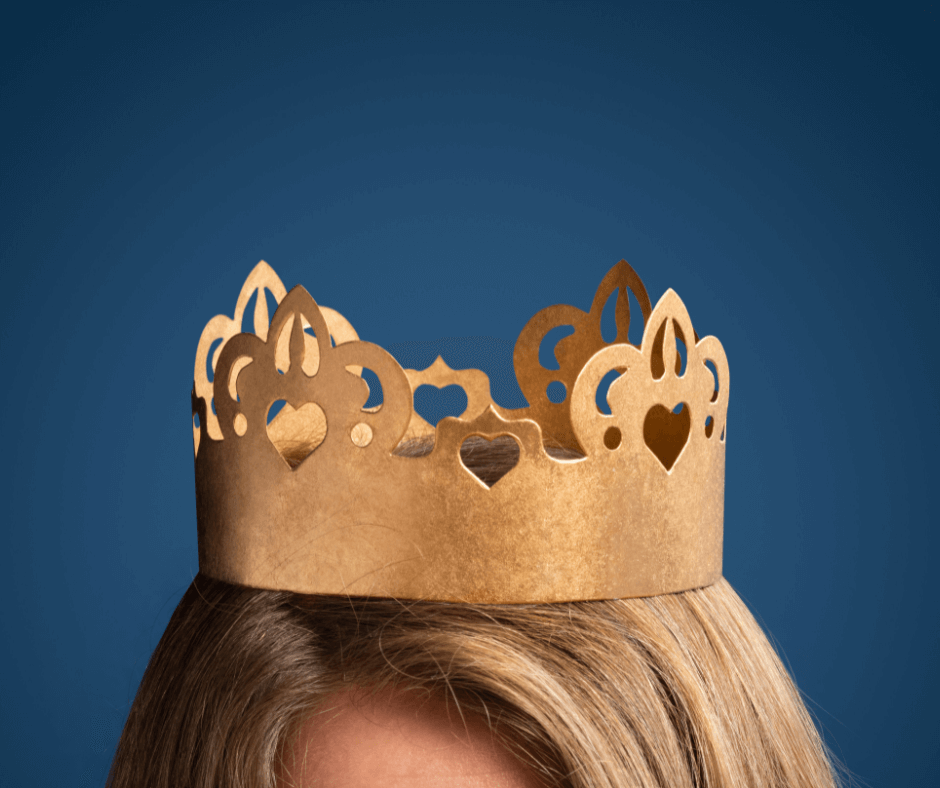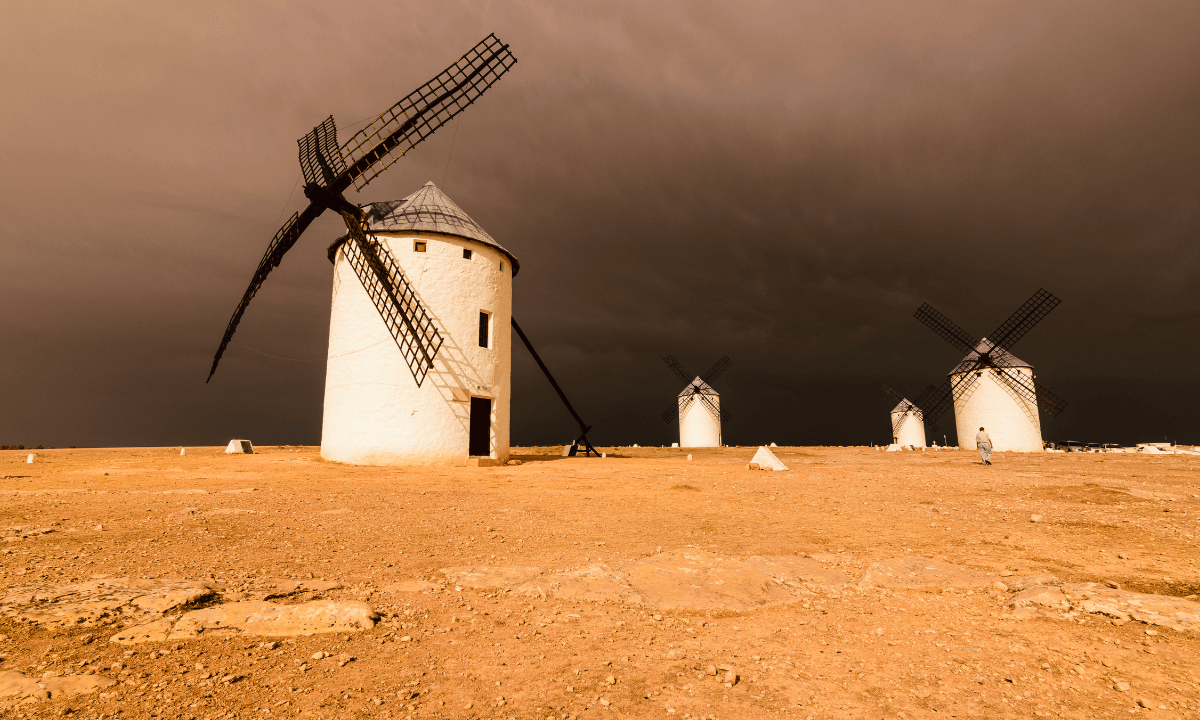This is Part 3 of the Capital Letters in English series. Here you will find several more categories we need capital letters for. We start with the titles of people, books, articles, and movies that, compared to other languages, have some unique capitalization rules.
If you can’t find what you are looking for in the Table of Contents below, check out Part 1 or Part 2 of this series. (Open in a new tab.)
Read the summary
- Titles of Books, Articles, and Songs: Capitalize verbs, nouns, adjectives, adverbs, pronouns, and phrasal verbs in titles. For instance, “Rolling in the Deep,” “Lord of the Rings.”
- Fictional Characters and Places: Names of fictional characters and places from literature, movies, or other media are capitalized. For example, Harry Potter studied at the “Hogwarts School of Witchcraft and Wizardry“.
- Official Documents: Capitalize titles of official documents like “The First and the Second Geneva Conventions” or the “World Health Organization Framework Convention on Tobacco Control (WHO FCTC).”
- Titles of People: Titles before names are capitalized, such as “Mr. Johansson,” “Miss Smith,” “Professor Williams,” “King Charles,” and “Doctor Mathews.”
- Time Periods and Events: Historical periods and significant events are capitalized, such as the “Black Death” (also known as the Plague), the “Great Hunger” (or the Irish Potato Famine), and the “Industrial Revolution.”
- Nationality Words: Words denoting nationality or ethnicity are capitalized, like “Indian” food or “American” movies.
Capital letters in titles
That may be a no-brainer for many but capitalization of titles – be it personal, professional, or those of books, articles, and works of art, can be a bit tricky sometimes and quite different from the way it’s done in other languages. Let’s have a look.
Personal and professional titles
Apart from using capital letters for people’s names, we also use capital letters for their personal or professional titles.
Generally, we do that
- before one or more names
- when addressing the person directly
- when used in the signature line of correspondence
- I am a great fan of Sir1 Elton John’s music.
- I heard that Mr.1 and Mrs.1 Johansson arrive today.
- There is a letter for you, Miss2.
- Has Professor1 Williams called the office today?
- It was a complicated surgery, but Doctor1 Mathews performed brilliantly.
People in office like presidents, prime ministers, and different high-ranking officials from the public sector, as well as people with military ranks, have their titles capitalized.

The head of President George Washington, the first president of the United States, on Mount Rushmore (far left.)
Mount Rushmore (An interesting read: “The heartbreaking, controversial history of Mount Rushmore“)
- Will you be addressing Congress, Mr. President?
- I don’t think Senator James is attending today. All other senators are present.
In other cases, use lowercase.
- Donald Trump was the 45th president of the United States.
- She is thinking about running for president.
Capitalize the plurals of official titles when mentioning the full names of the individuals.
- The sculpture on Mount Rushmore features the heads of Presidents George Washington, Thomas Jefferson, Theodore Roosevelt, and Abraham Lincoln.
Is it so in other languages as well? Let’s compare! (EN = English, FIN = Finnish, BG = Bulgarian, DE = German, RUS = Russian)
- EN – One more question, Mr. President!
- FIN – Vielä yksi kysymys, herra presidentti!
- BG – Още един въпрос, господин (п) Президент!
- DE – Eine Frage noch, Herr Präsident!
- RUS – Ещё один вопрос, господин президент!
A note on nobility titles

Capitalize Her Majesty, and Her Majesty the Queen because it’s a formal title.
Respectively, His Majesty, and His Majesty the King.
When we use the nouns king, queen, etc., in the plural (kings, queens), we do not capitalize them. The same goes for when we talk about kings and queens in general.
- How many queens has Britain had?
- Do you know who was the first king of England?
- The reigning king or queen is the United Kingdom’s head of state.
Here is what the Associated Press Styleguide advises on capitalizing nobility titles:
Honorary titles and titles of nobility are capitalized when they serve as an alternate name.
Associated Press Stylebook
“In their Oprah Winfrey interview earlier this year, the Duke and Duchess of Sussex accused the royal family of racism. Meghan said an unnamed royal – not the Queen or the Duke of Edinburgh – raised concerns with Harry about how dark their son Archie’s skin tone might be before he was born.”
Queen supports Black Lives Matter, says senior royal representative, The Guardian
To mention briefly: the term for the above titles is appellations. Appellations are words that are added to a person’s name for the reasons above – profession, rank, etc.
Sometimes even “normal” words can be added to the name of a person for other reasons altogether. For example, many monarchs are best known for their nicknames.
Usually, the nicknames describe either a personal characteristic of the monarch or speak of their reign. They come after the person’s name following the article “the” and are capitalized.
- Alexander the Great
- Louis the Well-Beloved
- William the Conqueror
- Ivar the Boneless
- Bolesław the Brave
Nicknames can come before the name. For example, Mary Tudor (Mary I) was also known as Bloody Mary for her prosecution of Protestants.
Titles of books and works of art
When it comes to the titles of books, articles, and songs, as well as movies, we write capital letters for each of the following words in any title:
- Verbs (even the verb to be)
- Nouns
- Adjectives
- Adverbs
- Pronouns (we, you, this, that, who, what, etc.)
- Phrasal verbs (dress up, check out)
- Look1 Who‘s5 Talking1
- Rolling1 in the Deep2
- Lord2 of the Rings2
As you can see above, not all the words in titles need capital letters. Here is a summary of the ones that don’t according to the AP Stylebook.
Capitalize all words in a title except articles (a, an, the); prepositions of three or fewer letters (for, of, on, up, etc.); and conjunctions of three or fewer letters (and, but, for, nor, or, so, yet, etc.) unless any of those start or end the title.
AP Stylebook
Have a look at the example below:

I found this recipe in the book Desserts to Die For.
Also, the titles of large works, such as books and movies, are italicized. The titles of smaller works like articles, use quotation marks, as shown below.
The Great Gatsby, by F. Scott Fitzgerald, published in 1925 by Charles Scribner’s Sons, was unsuccessful upon publication but is now considered a classic of American fiction and has often been called the Great American Novel.
Martinez, J. (2021, June 4). “The Great Gatsby. Encyclopedia Britannica”
(not a word-for-word citation)
Fictional characters and places
Speaking of books, authors and artists create fictional characters we get to know and grow to love. And here we are not talking only about characters like Anne (of Green Gables), Tom Sawyer, or Harry Potter, that are human, and it is only natural that their names are capitalized. We are talking about characters and entire worlds that are made up and cannot possibly exist in the real world, but they, too, have capital letters.
- Harry Potter studied at the Hogwarts School of Witchcraft and Wizardry* in the Scottish Highlands, and some of his core classes included Defence Against the Dark Arts* and History of Magic*.
*Neither the school nor the classes Harry Potter studied are real. However, because that is what they are called, their names are capitalized.
Another well-known and much-loved fictional place is the Shire, an idyllic and beautiful part of Middle Earth, with mossy rooftop houses, home of hobbits, most looking like Bilbo Baggins’ own Bag End.

Here are some more examples:
- Is the Joker Batman‘s biggest foe in Gotham City?
- Did you know that Santa Claus did not originally wear red but green?
Quoted speech in books
Now is a good time to mention something often seen in books. The first letter of a full sentence directly quoted within another sentence is capitalized. Focus on the final part of the quote below.
Mrs. Barry, not hearing or not comprehending, merely shook hands and said kindly: “How are you?”
Lucy M. Montgomery, Anne of Green Gables
“I am well in body although considerably rumpled up in spirit, thank you, ma’am,” said Anne gravely. Then aside to Marilla in an audible whisper, “There wasn’t anything startling in that, was there, Marilla?”
There is no need for capital letters if it is not a direct quote.
- My nephew said, “Sometimes I don’t want to go to school because it’s too boring.”
- My nephew said that “school was boring” sometimes.
Other written documents
The titles of other official written documents, such as (international) treaties, conventions, or contracts, also have capital letters.

The Declaration of Independence was signed on August 2, 1776, in the Pennsylvania State House.
By John Trumbull, American artist (1756–1843) – US Capitol, Public Domain, source
Let’s look at the examples below. (Be careful which parts of the title are capitalized):
- The Convention on the Elimination of All Forms of Discrimination Against Women was adopted in 1979 to help promote the principle of equality between men and women.
- What were the three main terms of the Treaty of Paris of 1763?
- The First and the Second Geneva Conventions protect persons at war, respectively, on land, and at sea, while the Third Geneva Convention applies to prisoners of war.
- The World Health Organization Framework Convention on Tobacco Control (WHO FCTC) is the first public health treaty in the world that came into force in 2005.
- The Representative List of the Intangible Cultural Heritage of Humanity is a list compiled by UNESCO to ensure the protection of important cultural heritages from around the world.
Nationality words and languages
In English, nationality words and the words for the languages different nations speak are usually the same (with some exceptions, of course). That may not be the case in other languages, however. Also, both are capitalized in English, whereas, in other languages, that is not always the case.
For example:
- She is French. She speaks French.
- She is American. She speaks English.
Proper adjectives
Proper adjectives, as mentioned before, are derived from proper nouns. One way to talk about people’s nationalities is to use proper adjectives derived from the name of the country they come from. Just as we always capitalize proper nouns, we always capitalize proper adjectives.
- My name is Nea, and I come from Germany. I am German.
- My mom is English, and my dad is Spanish.
We use the same words to talk about other things related to other aspects of a given country, for example, language* culture, food, nature, etc.

If you are interested in reading classic Spanish literature, start with Don Quixote by Miguel de Cervantes Saavedra.
- Many different customs and traditions from all around the world form the American culture.
- The key aspects of Finnish nature are the lakes and the deep-green forests that seem to be all around, even in the most populated areas of the country.
- Is Indian food the spiciest food in the world?
*When it comes to languages, there are exceptions, and people often get confused. For example, there are many American movies or American cars, but there is no American language. In Canada, people do not speak Canadian. They speak English and French. People in Syria don’t speak Syrian, but Arabic.
Now that languages were mentioned, let’s point something out. We capitalize the languages someone speaks or studies at school but do not use capital letters for the other school subjects.
- I study English and Spanish. I love languages very much, but I like chemistry too.
- She doesn’t like biology at all. That’s why she has low grades.
When you are talking about the name of a specific class or course, such as Math 241 or Chemistry 100, always capitalize it. Capitalize course titles such as History of the French Revolution and Childhood Psychology.
When to Capitalize School Subjects, THE BRITANNICA DICTIONARY
Let’s check if these capitalization rules apply to other languages as well. Focus on the words in bold. (EN = English, FIN = Finnish, BG = Bulgarian, DE = German, RUS = Russian)
- EN – She is German, but she speaks Finnish and Swedish well.
- FIN – Hän on saksalainen, mutta hän puhuu hyvin suomea ja ruotsia.
- BG – Тя е германка, но говори добре финландски и шведски.
- DE – Sie ist Deutsche, spricht aber gut Finnisch und Schwedisch.
- RUS – Она немка, но она хорошо говорит и по-фински и по-шведски.
There are five languages listed above. In two of them, we need capital letters, as the examples show. So, technically speaking, there is a big chance that many learners of English as a foreign language find this challenging.
*However, do not forget that German uses capital letters for all nouns, and all the words we are focusing on above are nouns.
Other nationality words
So far, we talked about proper adjectives1 but, in the case of languages, what seems to be a proper adjective is a proper noun2.
Here is how we would try to confirm that:
- She is German1, and she speaks very good English2.
In the above example, the word German is a proper adjective, which is why it is capitalized. Then, the word good is also an adjective, but it doesn’t need a capital letter because it is not a proper adjective. Last, the word English is a proper noun because, one, that is the name of the language, and two, it is modified by the adjective good. (That is what adjectives do, they modify nouns.)
That being said, we can talk about the nationalities of people not only by using the derivative words above. There are other nationality nouns we can use in some cases.
Country
Denmark
Finland
Sweden
Turkey
Refers to a person, the language, and the people
Danish
Finnish
Swedish
Turkish
Refers to a person or the people, not the language
a Dane/ the Danes
a Finn/ the Finns
a Swede/ the Swedes
a Turk/ the Turks
Time periods and historical events

The various periods or events in human history have names, and they, too, need capital letters.
No matter how tragic historical events and periods have been, they mark different milestones in our development as humans and deserve some special attention.
- The first stone tools were developed during the early Stone Age.
- In 1348, the Black Death, also known as the Plague reached Paris and London.
- The Great Hunger, also called the Irish Potato Famine, began in 1845 and lasted seven years, leaving behind a million people dead from starvation.
- During the Industrial Revolution which continued for almost a century, there was a rise in the number of factories that needed cheap workers, and that lead to an increase in child labor.
- The Second World War, also called World War II, began in September 1939 and ended in September 1945.
Generally described as taking place from the 14th century to the 17th century, the Renaissance promoted the rediscovery of classical philosophy, literature, and art.
Renaissance, HISTORY.COM
Other events
We use capital letters for other events, too. That includes sports events, concerts, festivals, conferences, and assemblies or movements (For example, Black Lives Matter).

When it comes to sports events in the US, there is only one winner: the Super Bowl. Its viewership even beats the presidential debates.
- The cycling competition Tour de France takes place each year in France and is watched by 3.5 billion viewers worldwide.
- The hard rock and heavy metal music festival Monsters of Rock first took place in 1980 in England.
- In 1814 and 1815, the Congress of Vienna worked to reorganize Europe after the Napoleonic Wars.
“The March on Washington for Jobs and Freedom was to protest the systemic disenfranchisement of black Americans and happened on August 28, 1963.”
14 of the biggest marches and protests in American history, INSIDER
Relatives
We capitalize the words mother, father, sister, brother, uncle, etc.,when using them instead of a name, usually when addressing the person or when followed by the name of the relative we are talking about.

You are the best, Mom!
- Hi, Dad! What’s up?
- How long before we get there, Mom?
- Did you call Aunt Betty for Christmas?
- I saw Uncle John the other day.
Do not use capital letters for the words mother, father, sister, brother, uncle, etc., when they come after a possessive pronoun.
- I saw your mom at the store.
- I met her uncle 20 years ago.
Capitalizing B in black
According to Associated Press, the word black should be capitalized in the following cases:
Capitalize Black in a racial, ethnic, or cultural sense, conveying an essential and shared sense of history, identity, and community among people who identify as Black, including those in the African diaspora and within Africa. The lowercase black is a color, not a person.
Associated Press Stylebook
As for w in white
There seems to be a debate on this issue, and people seem to be divided. Some argue that w in white should also be capitalized for the same reasons. As the example below demonstrates, CNN is doing it in its reporting.
“Kim Potter, the former Minnesota police officer who mistook her firearm for her Taser and fatally shot Daunte Wright, a 20-year-old Black man, during a traffic stop in April. Earlier Monday, the prosecution and defense laid out their closing arguments in the case, in which Potter, who is White, faces charges of first-degree and second-degree manslaughter.”
Kim Potter’s fatal Taser mix-up was a ‘colossal screwup,’ prosecution says. The defense says a mistake is not a crime, CNN
Here is what the Associated Press says about it:
AP style will continue to lowercase the term white in racial, ethnic, and cultural senses. This decision follows our move last month to capitalize Black in such uses. We consulted with a wide group of people internally and externally around the globe and considered a variety of commentary in making these decisions.
John Daniszewski, Vice President for Standards, Associated Press, Why
we will lowercase white
Do you capitalize these words in your native language?


